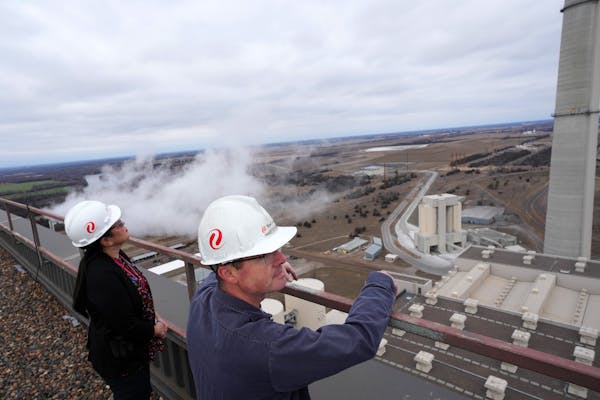Xcel Energy's fourth-quarter profits rose more than 7%, income the Minneapolis-based company said was tamped down because of $72 million in costs from hundreds of retirements and job cuts.
The Minneapolis-based company said roughly 400 non-bargaining employees retired under a voluntary program in 2023, and the electric utility cut another 150 non-union jobs.
"I think from a workforce reduction perspective, us like everyone else faced some significant cost challenges and pressures over the past few years," said Brian Van Abel, Xcel's chief financial officer, in a call with investors Thursday. "We undertook that to streamline the organization and ensure some of our resources aligned with where our customers needs are and our growth opportunities."
The utility reported earnings of $409 million, which is up from $379 million a year ago. Adjusted earnings, which did not account for the costs from the job losses, came in at 83 cents a share, up from 69 cents a share last year. But that was still below analysts' projection of 85 cents a share.
The company's stock price was up slightly early Thursday.
Over the year, Xcel's earnings rose about 2% to $1.77 billion, with adjusted earnings up about 6% to $3.35 a share. Analysts expected $3.36 a share for 2023. The company was able to achieve the jump in adjusted earnings by taking in more money from building infrastructure and electricity sales and lowering operating expenses.
In the call with investors, Xcel CEO Bob Frenzel highlighted the retirement of a massive coal unit at Xcel's Sherburne County Generating Plant late last year without personnel layoffs at the site, as well as the company's plans for a large battery project at Sherco and progress for a 250-megawatt solar farm at the plant.
Xcel kept its annual profit forecast for 2024 at $3.50 to $3.60 per share. The company's third quarter profit was $656 million, up slightly from $649 million the year prior, but adjusted earnings also missed Wall Street forecasts that quarter.
Xcel is the largest electric utility in Minnesota and is the second-largest natural gas supplier. The company's largest markets are Colorado and Minnesota, but it also serves in the Dakotas, Texas, New Mexico, Wisconsin and a small part of Michigan's Upper Peninsula.
Minnesota's med spa industry rises in popularity — and with little regulation

Ramstad: Readers say Walmart won't be paying the ultimate price of Trump's tariffs

How Minnesota businesses can spot and prevent invoice fraud
No place for cryptocurrency in retirement portfolios

